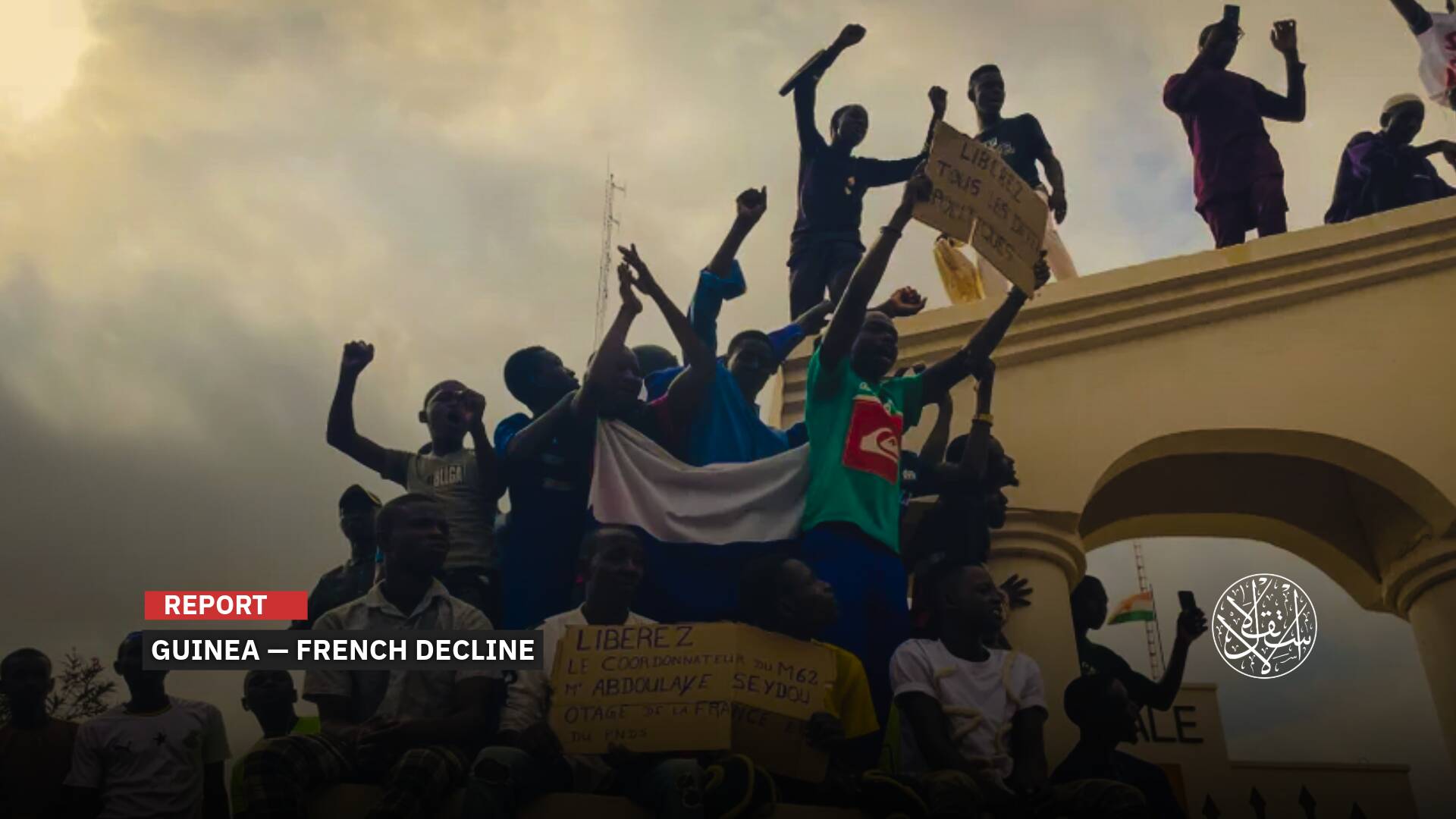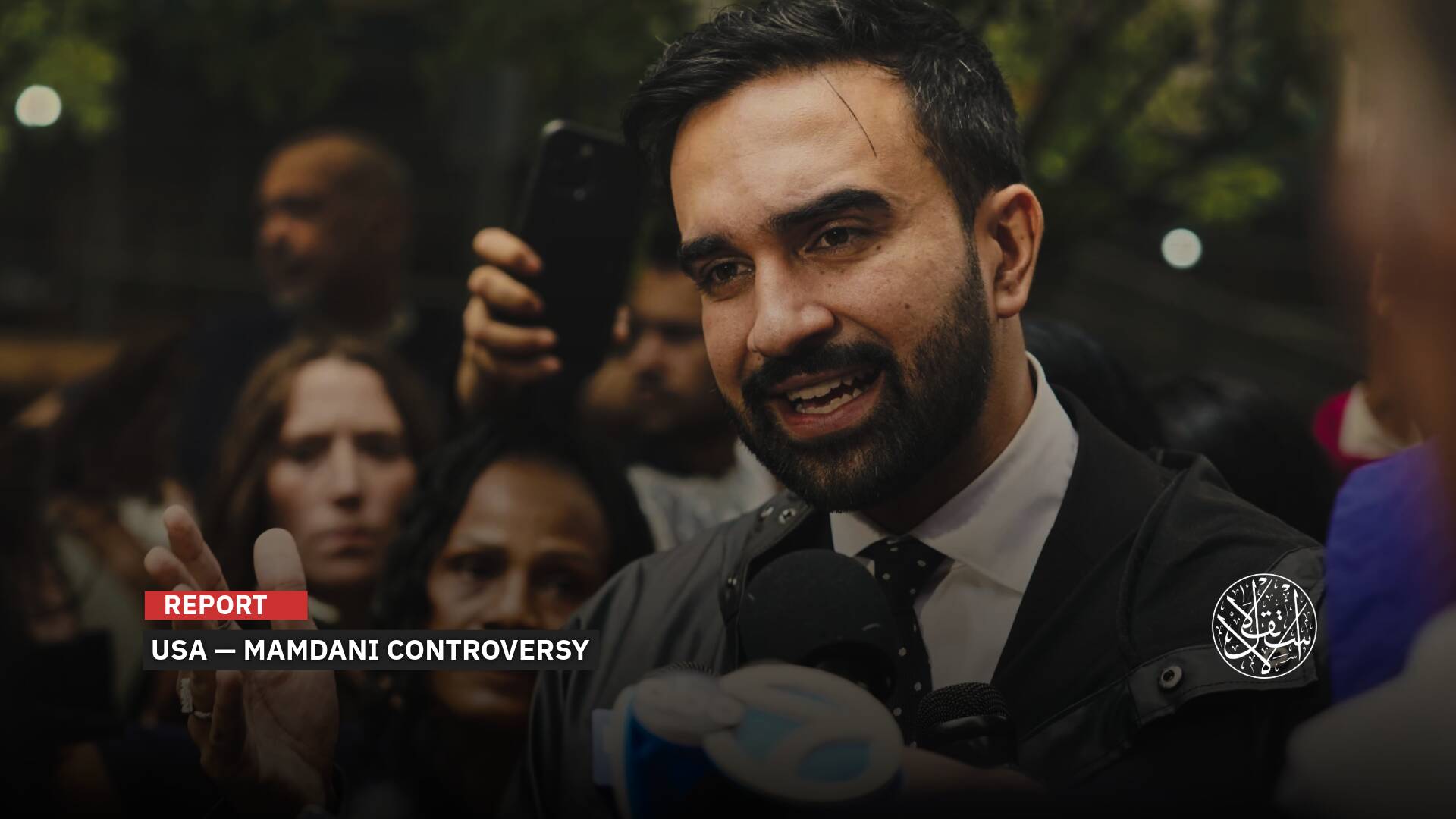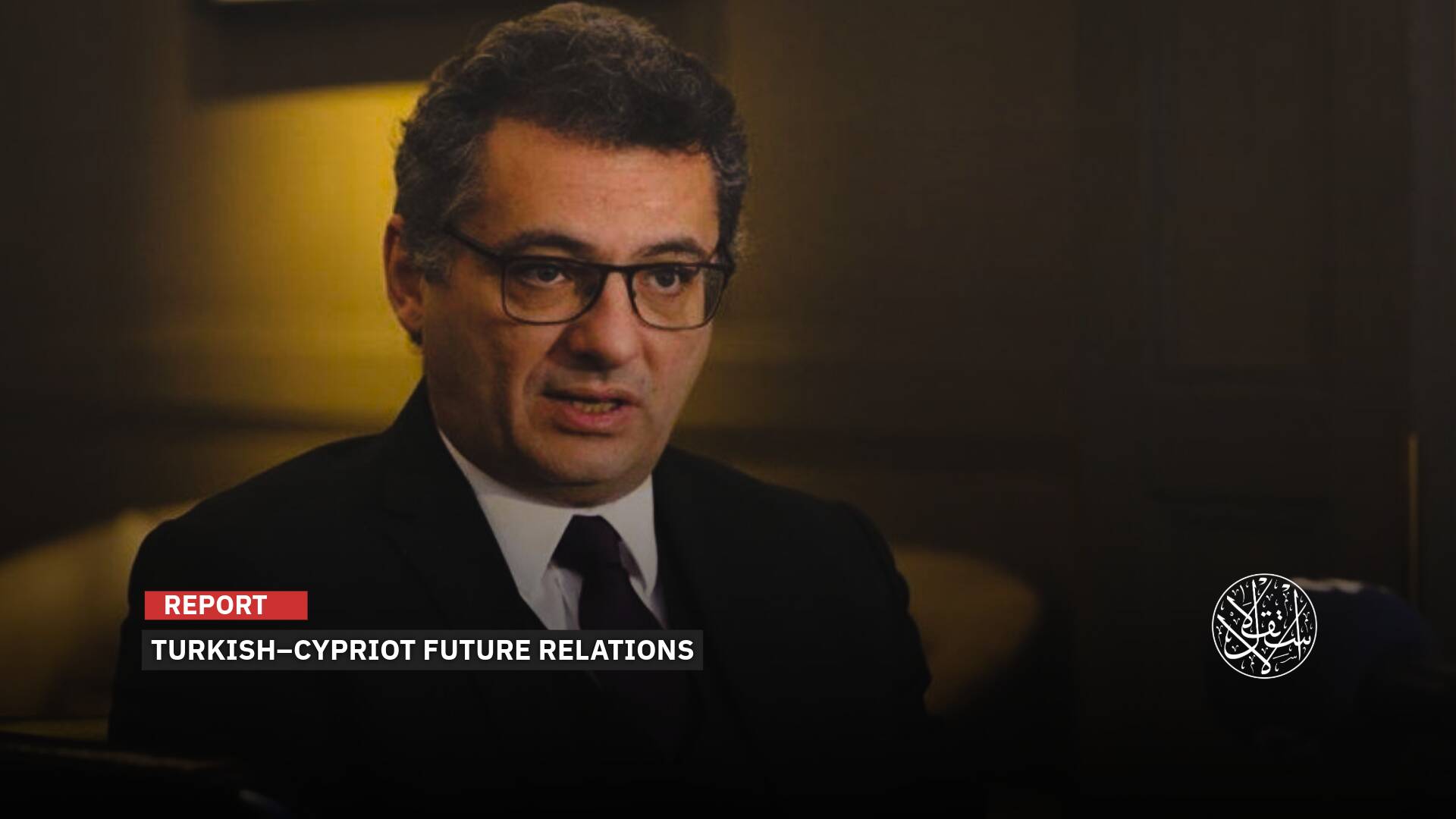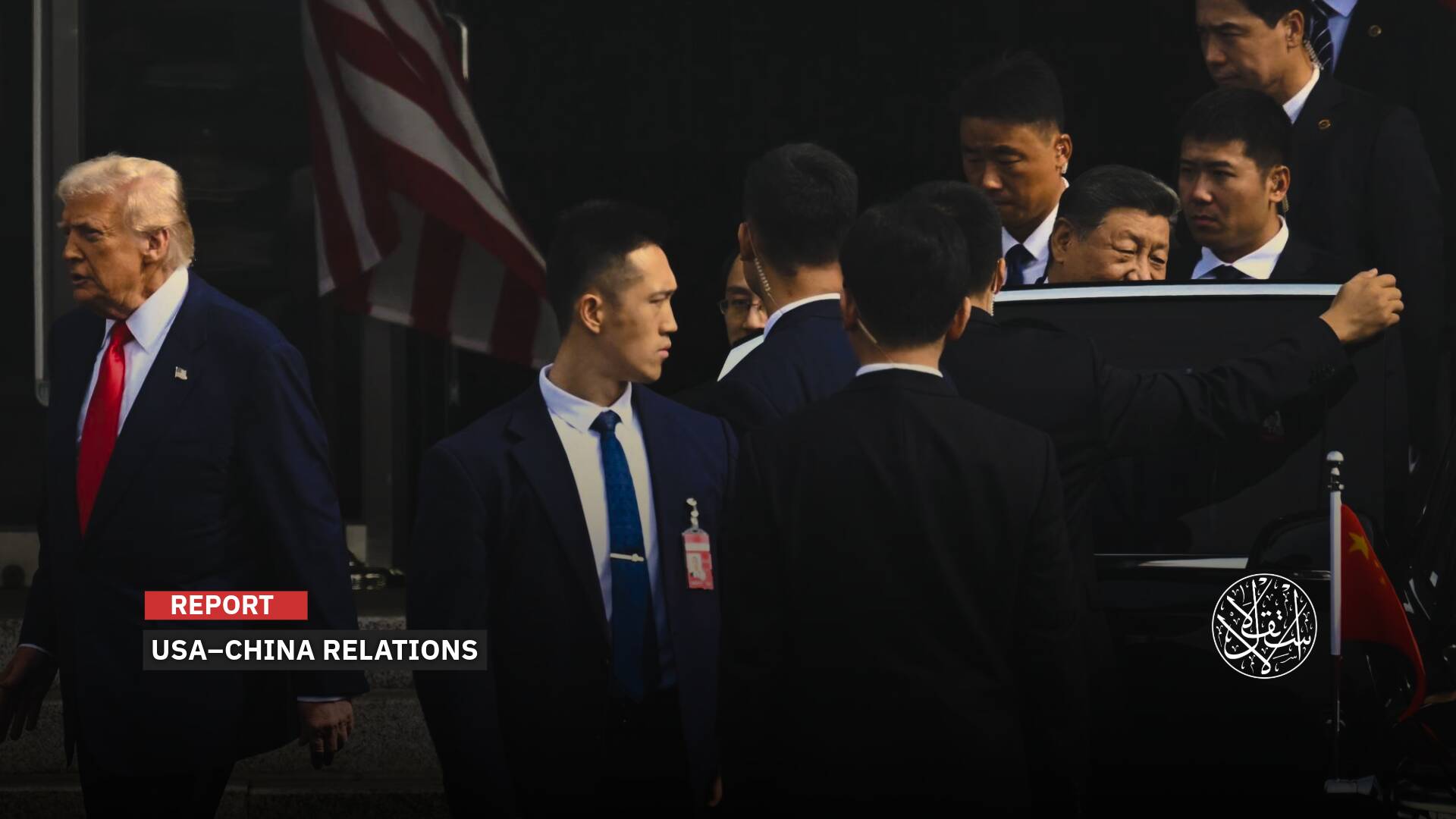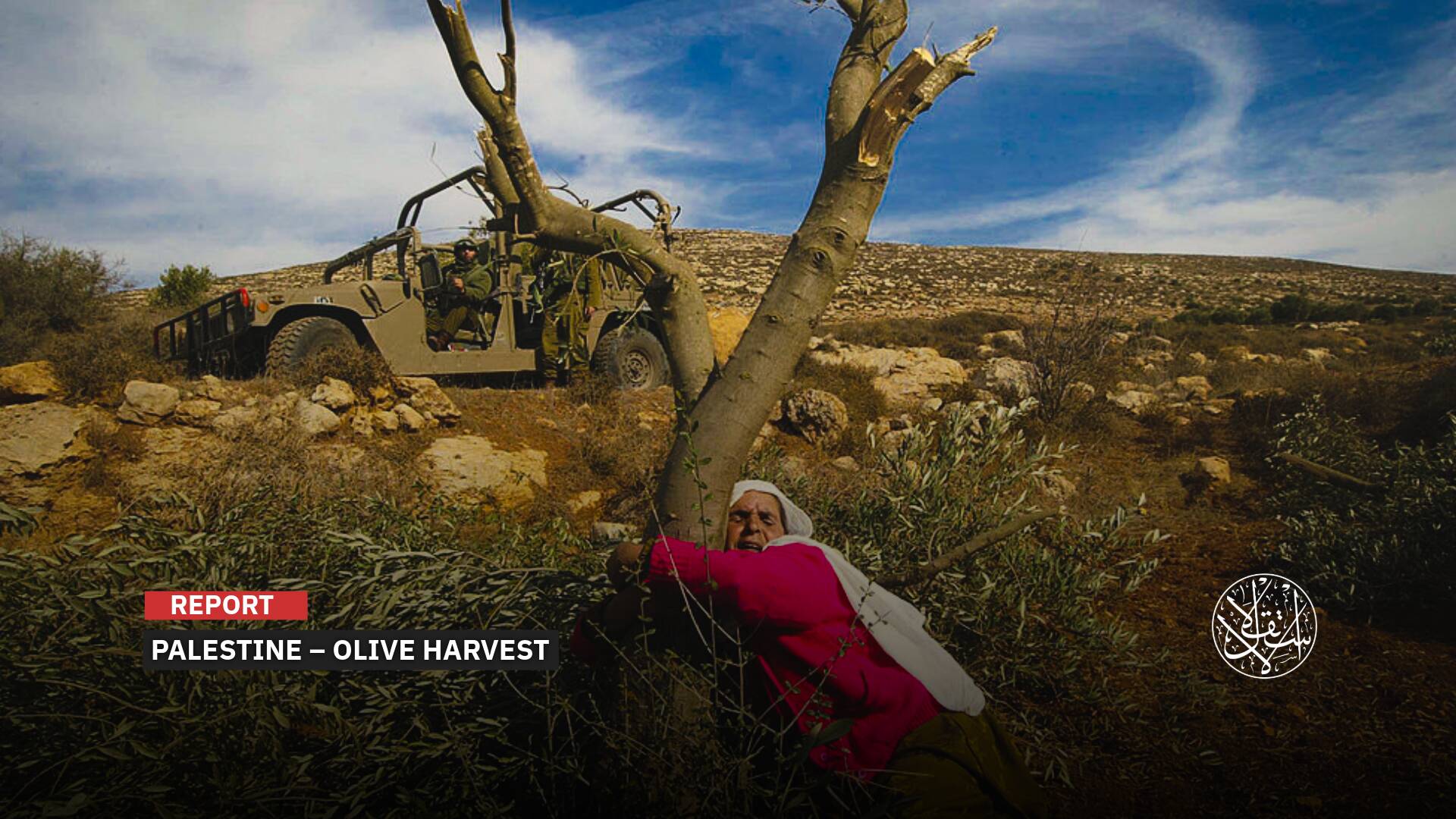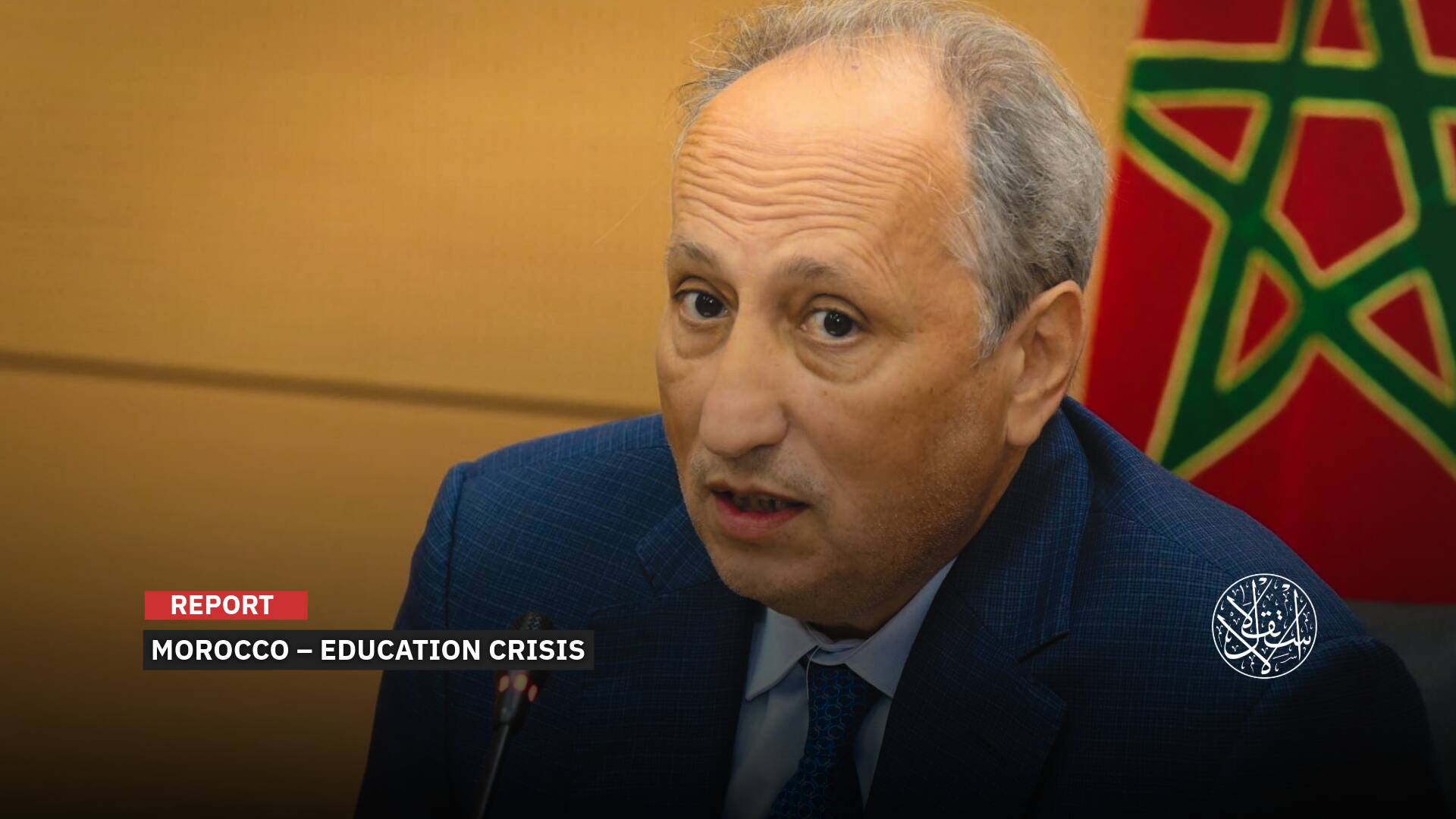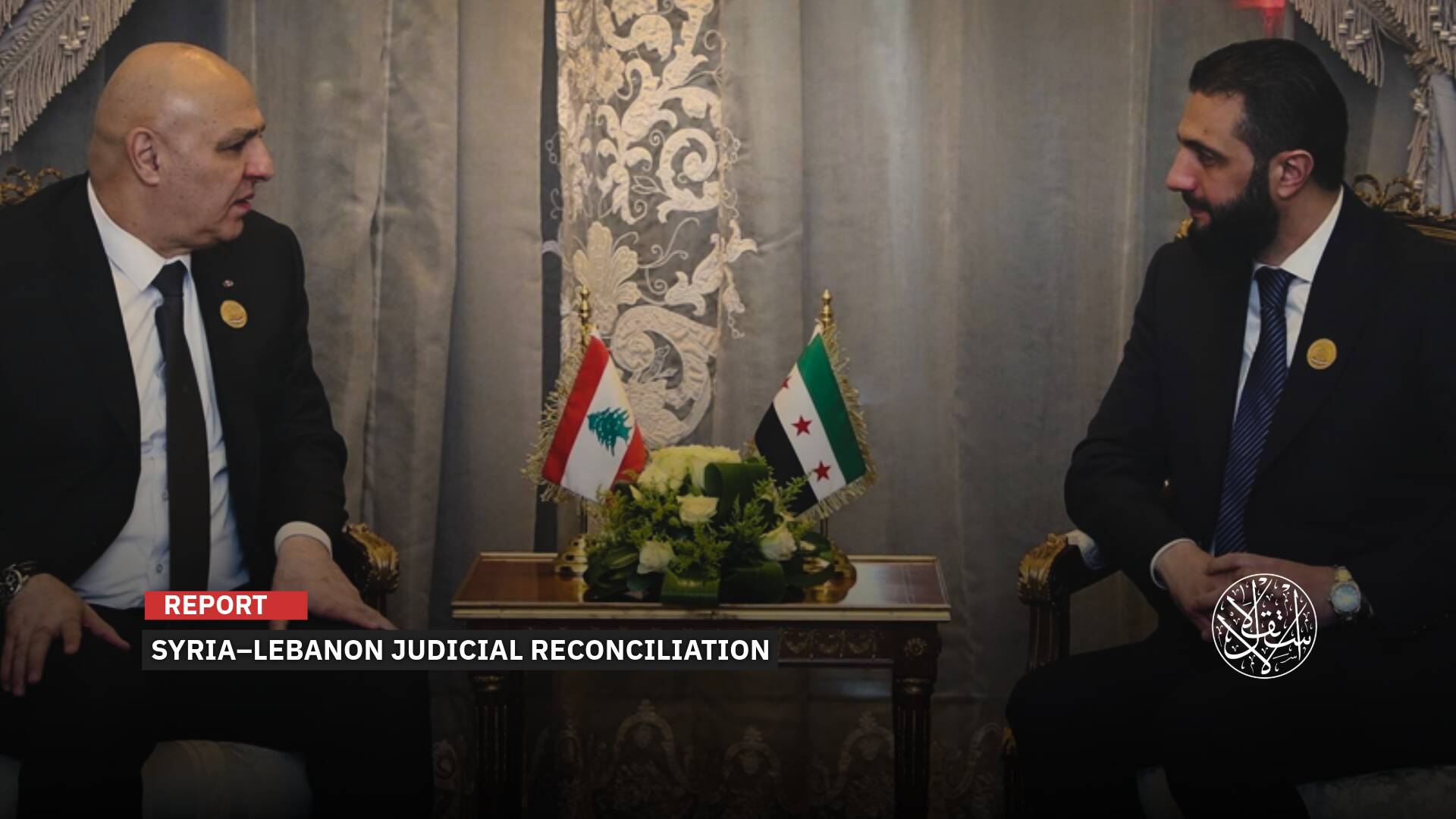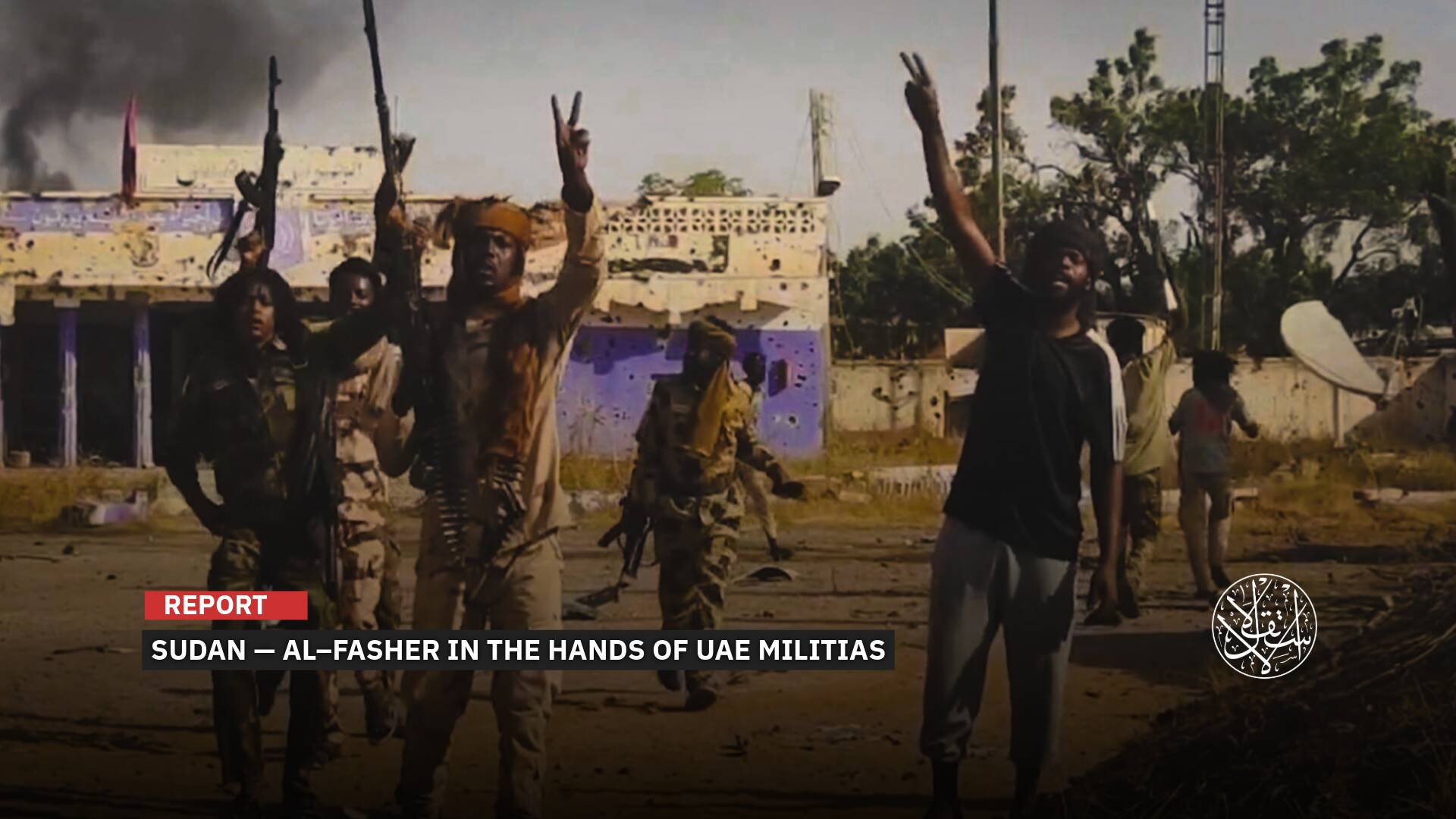Amid Challenges and Fears: Is BRICS a Possible Alternative to the Bad U.S. Leadership of the World Order?

Six new countries have joined the BRICS group consisting of Brazil, Russia, India, China, and South Africa, as announced by South African President Cyril Ramaphosa during a BRICS summit held in Johannesburg from August 22–24.
As of January 1, 2024, Iran, Saudi Arabia, the UAE, Egypt, Argentina, and Ethiopia will join the group of emerging countries seeking to enhance their influence in the face of the world order, which they see as unfairly dominated by the West.
According to Bloomberg, 22 countries have submitted an official request to join the group, which represents a quarter of the global economy and more than three billion people.
The BRICS group seeks to compete with the G7 (Canada, France, Germany, Italy, Japan, the United Kingdom, and the United States), and this is the second most serious attempt at competition since the formation of the BRICS in 2009.
This comes as the BRICS summit receives more attention than the G20 and G7 summits and the European Union, and many are wondering: Will this group, led by China, turn into a giant entity competing with the G7 industrial group, led by the U.S.?
BRICS Expansion
BRICS leaders held a three-day meeting in Johannesburg, attended by some 50 heads of state and government.
Among the most important things discussed and decided upon at the summit is the expansion of the BRICS bloc and the increase in the number of its members.
Although the BRICS member states previously expressed their support for the expansion of the bloc, there were divisions among the leaders regarding the pace and criteria for accepting new members.
On the last days of the summit, South African President Cyril Ramaphosa announced that the BRICS group had decided to invite six countries to its membership: Saudi Arabia, Egypt, the UAE, Argentina, Iran, and Ethiopia, noting that the membership of the new countries will start from January 1, 2024.
Leaders of member states noted that a larger group could help counter the G7’s dominance in world affairs.
It is noteworthy that China was the main driver behind the increase in the members of the group, but the expansion was also supported by Russia and South Africa.
India is concerned that expanding BRICS will turn the group into a platform for defending China’s point of view, while Brazil is also concerned about Western alienation.
However, they acquiesced in the idea of accepting new members, even as they sought to reach an agreement on rules and standards.
This is only the second expansion in the history of the bloc, which focuses on economic development and increasing the voice of its members in global forums.

Chinese President Xi Jinping, whose country is the most powerful in the group of non-Western countries, said the expansion of membership is a historic event.
“The expansion is also a new starting point for BRICS cooperation. It will give new strength to the BRICS cooperation mechanism and enhance the momentum for world peace and development,” he added.
Commenting on the accession of the new countries, Brazilian President Lula da Silva said that “with the accession of six new members, the bloc now represents 46% of the world’s population and a larger share of its economic output.”
Russian President Vladimir Putin congratulated the countries whose membership in BRICS has been approved, saying: “I congratulate the new members of BRICS, and we promise other members wishing to join to open the door for them at the next summit.
“It was a rich and important summit, and I congratulate all heads of state on the spirit of cooperation,” he added.
Putin announced that Moscow will use its presidency of the group next year to strengthen its role in the world, as it will host a summit in the Russian city of Kazan in October 2024.
While the Indian Prime Minister, Narendra Modi, said that India supports the development and expansion of BRICS, pointing out that the development of the group is a message that the whole world must hear, and it is an example of the amendments that must be made in various institutions.
On his part, UAE President Mohammed bin Zayed Al Nahyan expressed his appreciation for the BRICS group’s agreement to include his country in the group.
Bin Zayed said, in a post on X platform (Twitter), “We respect the vision of the BRICS leadership and appreciate the inclusion of the UAE as a member to this important group.”
He continued, “We look forward to a continued commitment of cooperation for the prosperity, dignity, and benefit of all nations and people around the world.”
We respect the vision of the BRICS leadership and appreciate the inclusion of the UAE as a member to this important group. We look forward to a continued commitment of cooperation for the prosperity, dignity and benefit of all nations and people around the world.
— محمد بن زايد (@MohamedBinZayed) August 24, 2023
Mohammad Jamshidi, political advisor to Iranian President Ebrahim Raisi, welcomed his country’s admission to the BRICS group of emerging countries, describing it as a historic event and a strategic success for Iran’s foreign policy.
In a historic move, Islamic Republic of Iran becomes permanent member of BRICS. A strategic victory for Iran's foreign policy. Felicitations to the Supreme Leader of Islamic Revolution and great nation of Iran.
— Mohammad Jamshidi (@MhmmdJamshidi) August 24, 2023
On his part, Ethiopian Prime Minister Abiy Ahmed praised the BRICS announcement of his country’s accession to the group.
“A great moment for Ethiopia as the BRICS leaders endorse our entry into this group today,” Abiy Ahmed said on X.
“Ethiopia stands ready to cooperate with all for an inclusive and prosperous global order,” he added.
A great moment for #Ethiopia as the BRICS leaders endorse our entry into this group today. Ethiopia stands ready to cooperate with all for an inclusive and prosperous global order. pic.twitter.com/BPspm8C0jm
— Abiy Ahmed Ali ���� (@AbiyAhmedAli) August 24, 2023
It is noteworthy that Jim O’Neill, a prominent and veteran economist in the Goldman Sachs Group, had confirmed a few days ago that if Saudi Arabia, one of the largest oil producers and exporters in the world, joined the BRICS bloc, this would be a very big deal and would add weight to the economic group.
If China and India were "serious" about problems like climate change, the BRICS bloc would be taken more seriously, says economist Jim O'Neill
— Bloomberg Politics (@bpolitics) August 21, 2023
He coined the term BRIC — and says ideas like replacing the dollar are "kind of madness" https://t.co/UaqoGFnHCv pic.twitter.com/gHV98r6Y3P
Multilateral Global Order
In the joint statement issued on August 24, the BRICS leaders called for reforms in the United Nations, including the Security Council, in order to make the organization more democratic and effective.
They also expressed concern about the use of unilateral measures that negatively affect developing countries.
The statement affirmed the commitment of the members of the group to strengthening and improving global governance by promoting a more flexible, effective, efficient, multilateral, and accountable system.
On the economic side, the statement made clear the BRICS leaders’ support for the establishment of an open and fair international trading system based on the rules of the World Trade Organization.
The statement also encouraged the use of national currencies in international trade and financial transactions, whether within the BRICS countries or with trading partners.

The bloc risks becoming more geopolitical in its attempt to rebalance global power, analysts say, especially as China and Russia seek to get it to side with it in the face of rising tensions with the West — something its expansion could facilitate, as reported by CNN.
The issue of expansion may be the association’s first stress test in its near decade-and-a-half of existence, according to Bhaso Ndzendze, an associate professor of politics and international relations at the University of Johannesburg.
“Adding members would expand the group’s global presence and increase buy-in for its agenda to counter Western political dominance,” he said.
New entrants with economic clout could spur the group’s ability to reshape or create alternatives to existing global power institutions, according to the CNN report.
Experts say, “The choice to include countries that are openly hostile to the West, such as Iran, could push them further towards becoming an anti-Western bloc.”
The addition of new members is likely to have at least some positive effects for the group’s most powerful member, China, especially as Xi tries to position his country as a leader in reforming the U.S.-led system he sees as bent on constraining his country’s rise.
“The broader its members, the stronger they can claim a collective voice, and the more China as the largest economy will claim leadership and representation of the developing world,” said Yun Sun, director of the China Program at the Stimson Center think tank in Washington.
Countries’ wide interest in joining BRICS is also a boost for Putin -- who remains welcome in the bloc despite being viewed as a pariah and a war criminal in the West.

Challenges and Fears
The BRICS countries account for 23% of global GDP and more than a third of the world’s population, but the group is heterogeneous: the five countries, spread over four continents, have mixed economic performance in terms of growth.
BRICS also faces a number of challenges; for example, its voting rights are limited in some international financial institutions; in addition to that, it suffers from geopolitical and economic crises.
China and India rarely agree on anything, which is a fundamental problem. The two most populous countries have been locked in a border dispute for years.
Their military chiefs agreed last week to work quickly to smooth over differences, paving the way for progress in negotiations between Xi Jinping and Indian Prime Minister Narendra Modi.
Due to the aforementioned reasons, the BRICS have failed to transform their growing economic power into huge political influence since they began holding leaders’ summits 15 years ago.
However, the current state of fragmentation in the global system, with the exacerbation of differences between the U.S. and China and divisions over the Russian invasion of Ukraine, gives it a new opportunity to become a louder voice in the global south and perhaps to compete with the U.S. and its allies.
As a broader group, the BRICS will account for half of global production by 2040, Bloomberg Economics estimates, double the share of the G7, and upending the situation compared to the turn of the century.
Almost half of the world’s population will be included in the expanded BRICS group, up from 42% now, according to Anil Sooklal, South Africa’s ambassador to the bloc.

Credit: Statista
Until now, severe divisions among members have limited the ability of the bloc, which issues decisions by consensus, to maximize its influence in institutions such as the International Monetary Fund (IMF), the World Bank, or the UN Security Council.
The Development Bank, established by the BRICS countries, lent only $32.8 billion within 8 years of starting its work, which constitutes a small part of the sums provided by the IMF and the World Bank during this period.
However, a number of available opportunities enable BRICS to contribute to changes in the global system, such as the establishment of a unified currency or the use of local currencies in trade exchanges between BRICS countries to confront the monopoly of the U.S. dollar and get rid of its hegemony.
The paradox is that Brazil seems to be the country most enthusiastic about launching a BRICS currency as an alternative to the U.S. dollar, while the rest of the countries, including China, seem cautious in this matter, as the agenda of the Johannesburg summit was devoid of this idea.
In this context, a report published by the British UnHerd website expressed the West’s concerns, saying that “What we may be seeing emerge is a largely technocratic trading and economic bloc modeled on the post-1945 Bretton Woods system that would signal the start of a new epoch.”
Sources
- BRICS Group Announces New Members, Expanding Its Reach
- BRICS Summit: Birth of a counterweight to the West?
- China urges Brics to become geopolitical rival to G7
- A key Russia-friendly bloc may decide to expand. Who stands to benefit?
- Growing BRICS Alliance to Rival G-7-Led World Order
- A new BRICS currency is a threat to the West [Analysis]



